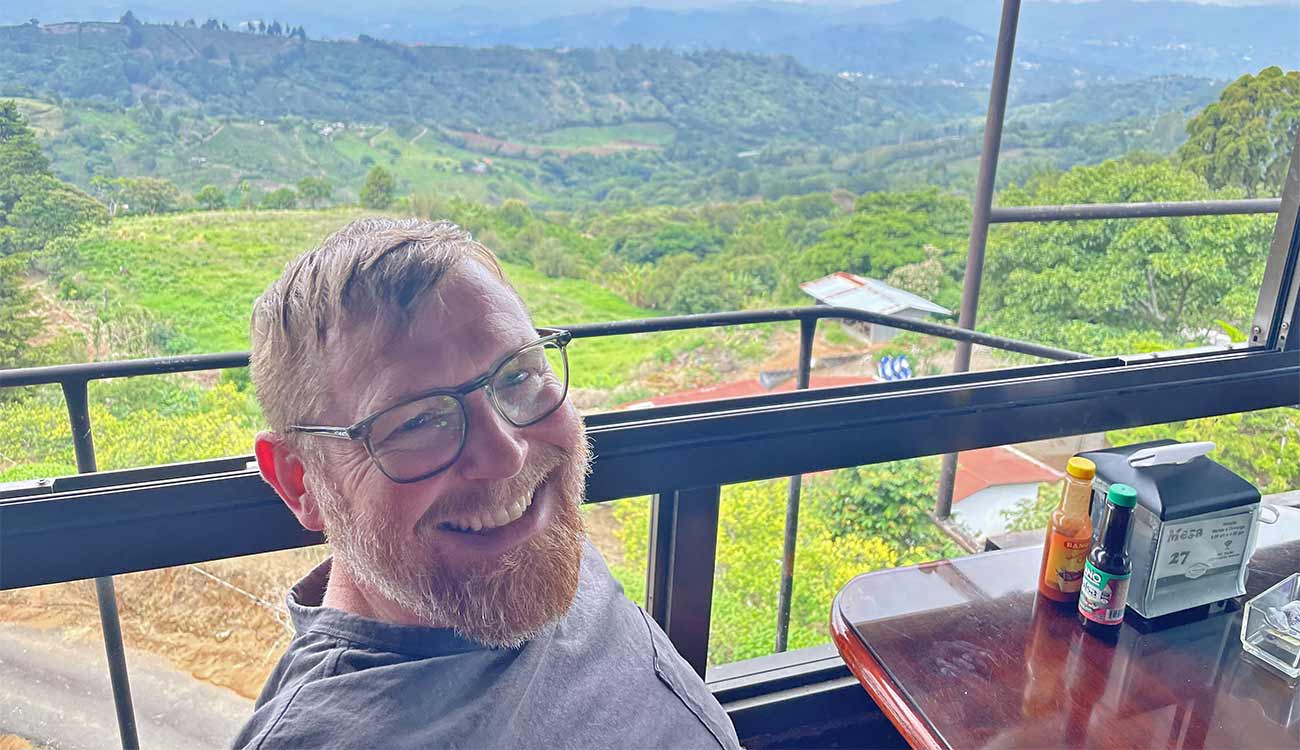In his years of teaching economics and business courses, Brock Eubanks has talked to more than a few Yakima Valley College students with an entrepreneurial bent and visions of opening their own coffee shop.
Those conversations started brewing an idea.
“With those students in mind, I thought it would be great to get some boots-on-the-ground [experience] in a major coffee-exporting country and be able to tell the students that want to create a coffee shop where their product will come from,” said Eubanks.
This spring, Eubanks took advantage of his first-ever sabbatical to travel to Costa Rica and visit coffee farms and plantations, talk to people working in the industry and study first-hand the cultivation of coffee and business models for its distribution and trade.
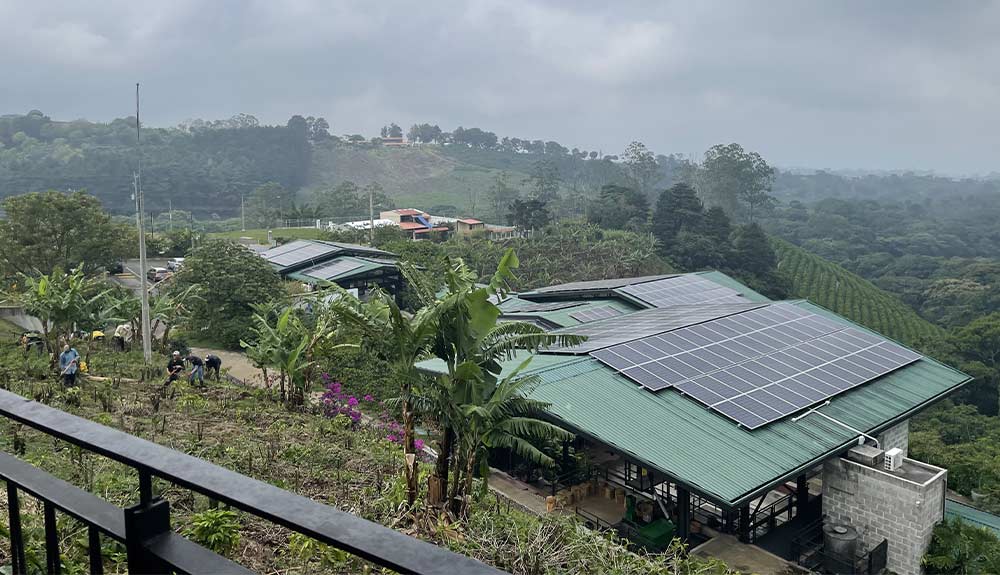
Coffee is a big, highly competitive business, with a worldwide market estimated at $132 billion in 2024 and growing rapidly. That makes it a great means of discussing international trade and labor issues that Eubanks teaches about in four different classes.
“The fact that I can use coffee and coffee importation/exportation, coffee trade and the coffee industry as a way to explore some of those micro and macro issues I think that really makes it real and I can use what I learned to really deliver cool content for the students,” said Eubanks.
For the majority of his three weeks in Costa Rica, Eubanks and his wife made their base an old coffee silo converted into an Airbnb that was located on a small coffee farm.
Other coffee farms covered the neighborhood around his coffee silo Airbnb, along with numerous small coffee processing plants.
“The owners of the Airbnb themselves are actually a part of what I thought was a really cool trend,” he said. “In addition to being coffee farmers, they themselves were coffee entrepreneurs.”
The owner of the Airbnb also held a job training baristas, while his father, in addition to working the two-acre coffee farm, also had more than 30 years of experience as a professional, licensed coffee taster.
Thanks to his connections with the family operating the coffee silo Airbnb, Eubanks was able to secure a private tour of a smaller farm that processes coffee for Starbucks and Green Mountain Coffee Roasters. Not only did he get an in-depth look at the processing of coffee, from pulling beans out of the coffee cherry to drying and shelling the beans, he also visited a traditional Costa Rican coffee farmer’s hut and sampled coffee made with a chorreador, in which hot water is filtered through a sock-like cloth filter containing coffee grounds.
“It was one of the best cups of coffee we’ve ever had,” he said. “It was rich. It was creamy. Pouring the coffee through the stocking instead of a paper filter enables the coffee to keep its oils.”
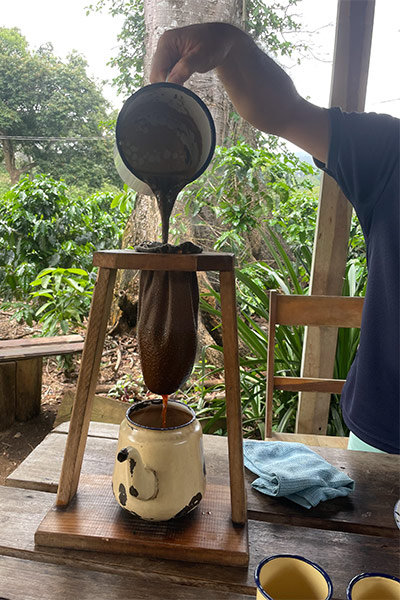
Among the other coffee farms that Eubanks visited were Hacienda Doka, Espíritu Santo and Starbucks Hacienda Alsacia.
Eubanks said he was surprised by some of the differences he observed at various coffee farms. At Doka Estates, for example, the company used processing equipment that in some cases was more than a century old. On the other hand, the Starbucks Hacienda Alsacia was very focused on innovation, with new equipment, solar panels on top of buildings to help provide power and a staff of scientists experimenting with strains of coffee plants that will produce beans more quickly.
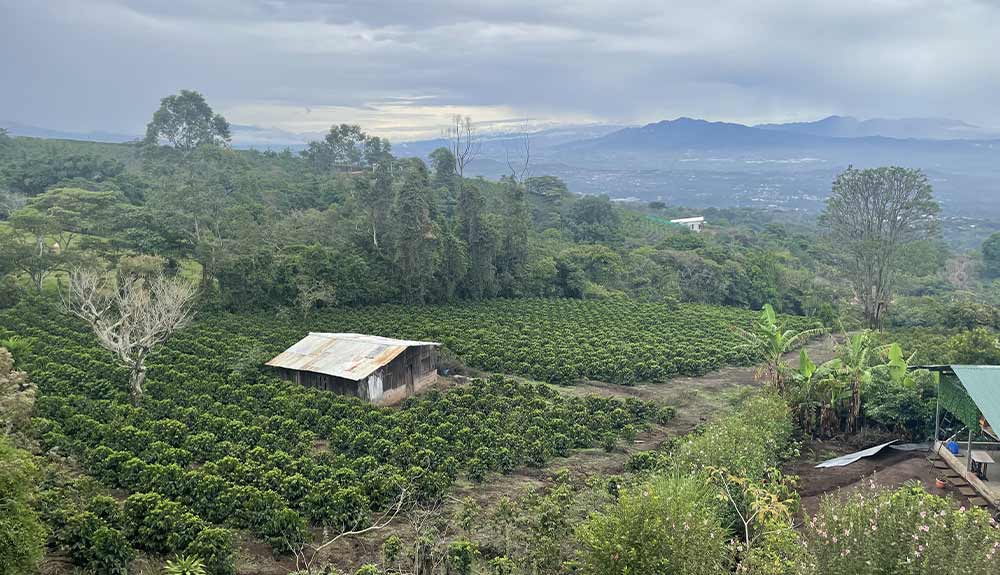
The diversity within Costa Rica’s coffee industry stood out, Eubanks said, offering rich lessons that he can pull into his classes.
“That emphasis on entrepreneurship was clear. So even though there are larger coffee farms that offer tours, there are hundreds, if not thousands, of independent coffee farmers,” he said. “That actually plays into some of the lessons I teach in economics regarding the difference between a single supplier and the market of many suppliers. So it was really cool to see all that play out in person.”
“There’s an added level of credibility with students when you’re sharing the conversations you had with Costa Ricans who are coffee entrepreneurs, when you’re sharing photos that you took on a working coffee farm.”
— Economics Instructor Brock Eubanks
Eubanks said he took numerous photos to document the many steps of the manufacturing process and the workers who are involved, which he can use in class to teach about labor costs and how those ultimately translate into the cost of a cup of coffee.
He also talked to coffee farmers about the impact of immigration on the industry.
“A lot of the coffee farmers rely on immigration from Nicaragua for their workforce, because going out and picking the bean is really labor intensive,” Eubanks said. “It was very similar to some of what the United States is experiencing with labor immigration from Mexico.”
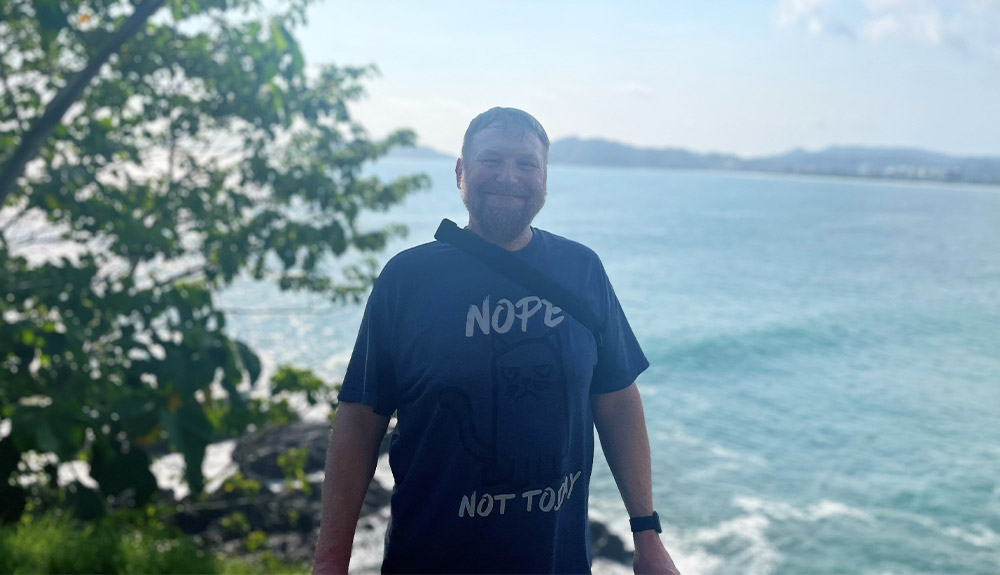
In between visits to coffee farms and talking to Costa Ricans working in the coffee industry, Eubanks also found time to enjoy some of the country’s natural wonders, including Poas Volcano National Park, which features active volcanic activity and a cloud forest ecosystem; Arenal Volcano National Park, home to Costa Rica’s most active volcano; and the stunning La Fortuna waterfall.
During the 2024-25 academic year, he plans to incorporate new elements related to the coffee trade into his Economics 101 (Introduction to Economics), 201 (Microeconomics), 202 (Macroeconomics) and 305 (Managerial Economics) classes.
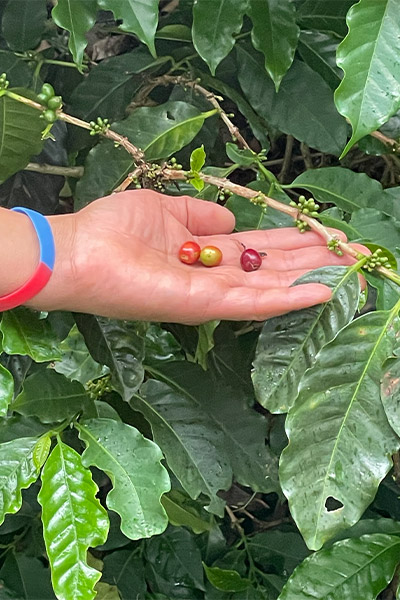
“Since my visit to Costa Rica, I’ve got new coffee industry worksheets that are brewing in the back of my mind to deliver to my students and so I think I will continue engaging in curriculum design between now and when school starts,” Eubanks said.
While preparing for his sabbatical, Eubanks also learned about the Northwest International Business Educators Network (NIBEN) grant program, sponsored through the University of Washington’s Foster School of Business. The program supports faculty at community colleges in Washington state who are looking to add international studies to their business courses.
Eubanks wrote a successful proposal to use what he learned during his sabbatical to add content related to the international economics of coffee into his existing courses as well as create a new international economics course at YVC. He’s now working on the skeleton of a new international economics course to take to the college’s curriculum committee, with hopes to have it approved to be added to the course catalog in Fall 2025.
“It’s cool that they provide funding for development of curriculum specifically for community colleges in Washington,” said Eubanks.
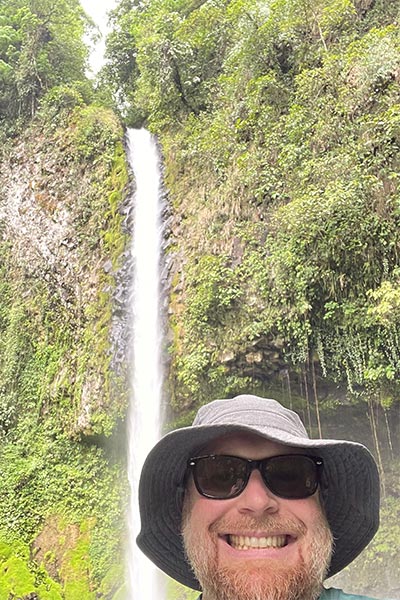
Eubanks noted that his first-hand experience visiting coffee farms and talking to people working in the industry will help bring the new units and class he’s developing to life for students.
“There’s an added level of credibility with students when you’re sharing the conversations you had with Costa Ricans who are coffee entrepreneurs, when you’re sharing photos that you took on a working coffee farm,” he said.
And, those stories could inspire YVC students about their futures.
“There are a lot of students who think international travel is out of reach,” Eubanks said. “But travel and learning go hand in hand. I think hearing from an instructor early on can show them that traveling and studying internationally is something they could pursue and really benefit from.”
Story by Dustin Wunderlich, director of community relations. Photos provided by Brock
Eubanks.
